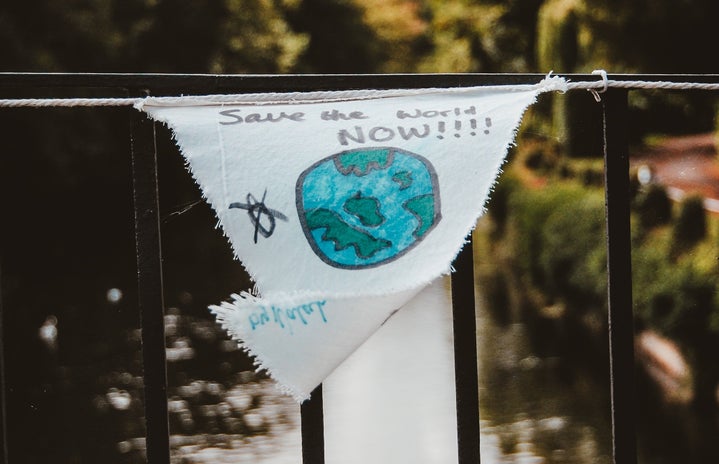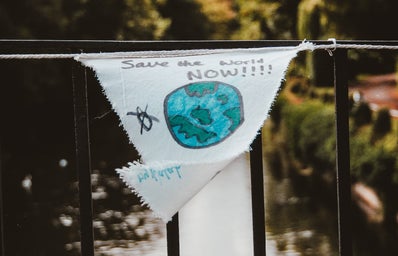On Tuesday evening an audience of about 230 (primarily students) was settled in Willamette Hall, many poised with open laptops and notebooks as if waiting for class to begin. Instead, Joshua Hunt was launching into a talk on his controversial book, “University of Nike: How Corporate Cash Bought American Higher Education”. The book takes a close look at Nike’s sway over UO as well as the corporatization of colleges across the country and has garnered national attention since it was published in October.
But it wasn’t what Hunt came to Oregon to write. “I came here as a freelance reporter for the New York Times looking into a story about 3 basket players who were accused of raping a fellow student,” he said. “I was curious why it seemed to have been covered up rather shamelessly.” His investigation into University of Oregon affairs and record keeping kept Hunt hovering around and ultimately led to “University of Nike”.
Hunt touched on key points from his book which traces UO’s relationship to the “shoe dog of America” back to a budget cut in 1990. The bulk of state funding for Oregon schools had vanished, he explained, and in the face of financial downturn, university president David Frohnmayer turned to his school’s wealthiest alumnus: Nike founder Phil Knight.
“The answer to the budget crisis,” Hunt said, “was to a) get more money from Phil Knight and b) use it to build up the athletics programs as a means of attracting more out of state students.”
In exchange for his financial support, Knight gained advertising access to the UO student body and sports programs一from shelf space at the Duck Store to the Nike swoosh marking Oregon jerseys, according to Hunt. Nike is “turning your campus into a giant commercial,” he told Tuesday’s audience, and “creating brand loyalty that’s difficult to buy.”
While some view this arrangement as a win-win, Hunt believes that it hurts the average UO student by sucking funds towards athletic programs where they better benefit Nike’s marketing agenda. “UO is overspending on nice athletic buildings but constantly cutting back on everything else while raising tuition,” he said.
Above: Nike founder Phil Knight cheering at a sports game.
Since its publication, “University of Nike” has been challenged by the people and institutions depicted within its pages. The Portland Business Journal reported that during the Q&A portion of Hunt’s reading in Powell’s Books, Susuan Frohnmayer (who married into the Frohnmayer family) read from a list of 20 “glaring inaccuracies” found in the book.
The most significant item on the list regarded the Fanconi Anemia Research Fund (FARF), a nonprofit started by David Frohnmayer and his wife to research cures for the rare disease that eventually killed three of their four children. Throughout his relationship with Frohnmayer, Knight donated $1-2 million to FARF each year around Christmas.
In the late 1990s, student protests over Nike’s sweatshop practices erupted and young activists pushed Frohnmayer to commit the U of O to a one year Workers Rights Consortium membership in April of 2000. According to “University of Nike”, a displeased Phil Knight reacted by withholding his regular contribution to FARF until Fronmayer一desperate to fund the research that might save his child’s life一 withdrew UO from the WRC, cutting their contract short.
The Frohnmayer family has refuted this account, asserting that Knight did donate to the fund in 2000. “I am deeply disturbed and confused by the fabrications you made in your book about Lynn and David Frohnmayer and their children,” Ms. Frohmayer said at the Powel’s reading. “I have to wonder why this happened and why was this disinformation published.” Hunt stood by his book, referring readers to the end notes for sources.
The University of Oregon has denied that Knight’s financial involvement allows him undue influence over the school. “We are extremely grateful to both Nike as a company and to Phil and Penny Knight individually for their generous support,” stated a UO spokeswoman after the book’s release. “Their support for both academic and athletic programs at the University of Oregon comes without strings attached and has transformed this campus in profoundly positive ways.”
The statement didn’t directly respond to Hunt’s claims but added, “Given our focus on the university’s future, we will not engage in debate over Mr. Hunt’s book, which largely speculates about and rehashes historical events that have been covered elsewhere.”
Above: the design for the University of Oregon’s Knight Campus for Accelerating Scientific Impact, created by Bora Architects.
When asked about hope and action for the future during Tuesday’s Q&A, Hunt stressed the importance of activists banding together in collaborative efforts, citing the student protests of the 1990’s and the activism of Parkland shooting survivors today.
“There’s power in collective bargaining, there’s power in numbers, and it’s basically the only thing that university presidents and administrators respond to besides money,” he said.
Hunt also asked students to keep a close eye on the Phil and Penny Knight Campus for Accelerating Scientific Impact. According to the University of Oregon’s website, this $1 billion dollar project is “focused on dramatically accelerating the process of turning scientific discoveries into societal benefits.”
Knight stated that he and his wife “have high hopes that these buildings and the people inside them will do great things for our university and the state.”
Hunt, however, questioned the value of this undertaking and advised the audience to be wary of potential academic cuts, tuition increases, and declining salaries and benefits for employees in light of such spendy projects. “Just remember,” he warned, “whatever they take away, you’ll never get back一that will be the new normal.”



